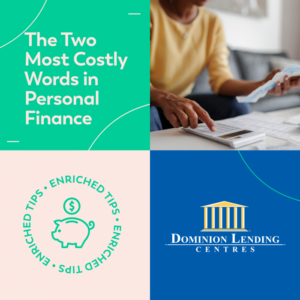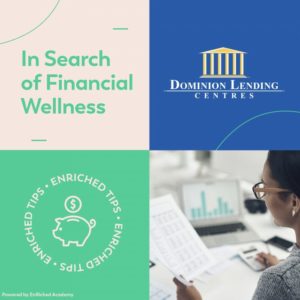 The Two Most Costly Words in Personal Finance.
The Two Most Costly Words in Personal Finance.
Most of us have experienced how YOLO (You Only Live Once) is the one word that often leads to a pile of unpaid credit card bills and more than a few regrets down the road. However, YOLO has a contender for the world’s most expensive word, and that word is procrastination.
Enriched Academy are huge believers in education, fact finding, and analysis before making any important financial decisions, but at some point, you have to act. Whether it’s opening an online brokerage account, meeting with a financial coach, or simply inputting your monthly household expenditures into a spreadsheet, you need to get moving.
There are lots of reasons why we kick financial matters down the road — not enough time? lack of knowledge? low motivation? Regardless of the reason, if you need a little inspiration, here are five examples that clearly demonstrate the cost of procrastination when it comes to managing your money.
Attacking your debt problem
If you have credit card debt, car loans, or a line of credit that you are in no hurry to eliminate, you need to look at how much it is costing you. Credit card debt has always topped the list and even the so-called “low interest” credit cards are around 10% (most charge double that rate). Paying the minimum 3% will get you nowhere fast — at the usual credit card rate of 20%, a $1000 balance will take 11 years to eliminate and cost you another $1000 in interest.
Starting your retirement planning
Too little, too late is the story for many Canadians when it comes to funding their retirement. CPP and OAS aren’t enough to save you. Did you know you have to pay into CPP for 39 years to claim the maximum amount and that the average monthly payment is currently $811? If you don’t know where to start, open a TFSA and focus on putting in as much as you can each year. Your annual contribution limit is $6500 but it carries over from year to year and you may find you have a lot of unused contribution room. Make sure to invest your TFSA funds and don’t let it sit in cash.
Analyzing expenses and budgeting
Next month is not the time to start figuring out where your money goes every month and where you could/should/need to cut back on spending. The time to get started is today, and it has never been easier with hundreds of online applications and spreadsheet software, or you can go old school with pen, paper and calculator.
Getting started with investing
Getting a late start makes it very difficult to catch up because you seriously reduce the effect of compound investment returns. Investing $500 monthly at 5% starting at age 25 versus age 35 will cost you an extra $60K, but it will add over $325K to your retirement fund by age 65. You don’t need to be an investing genius to get going, there are lots of low-cost, low-maintenance and relatively simple ways to manage your own investing these days.
Creating an emergency cash reserve and a will
If the pandemic taught us anything, it was to prepare for the worst. Your income could unexpectedly and very easily disappear for a number of reasons, so you need to have enough cash on hand to tide you over for a few months. As for a will, they are lots of options (including online) these days and there isn’t any valid excuse for not having one, especially compared to the mess it leaves behind for your loved ones if you die without one.
A YOLO attitude and procrastination sound harmless enough, but they can seriously derail your finances. Make sure to keep them at bay or your financial goals will continue to be elusive.
Published by DLC Marketing Team
Contact Jennifer Koop, your Cottage Country Mortgage Agent, today for all your mortgage needs, 705-349-0502

 Second Mortgages: What You Need to Know
Second Mortgages: What You Need to Know After You Buy – Closing Tips
After You Buy – Closing Tips In Search of Financial Wellness?
In Search of Financial Wellness?